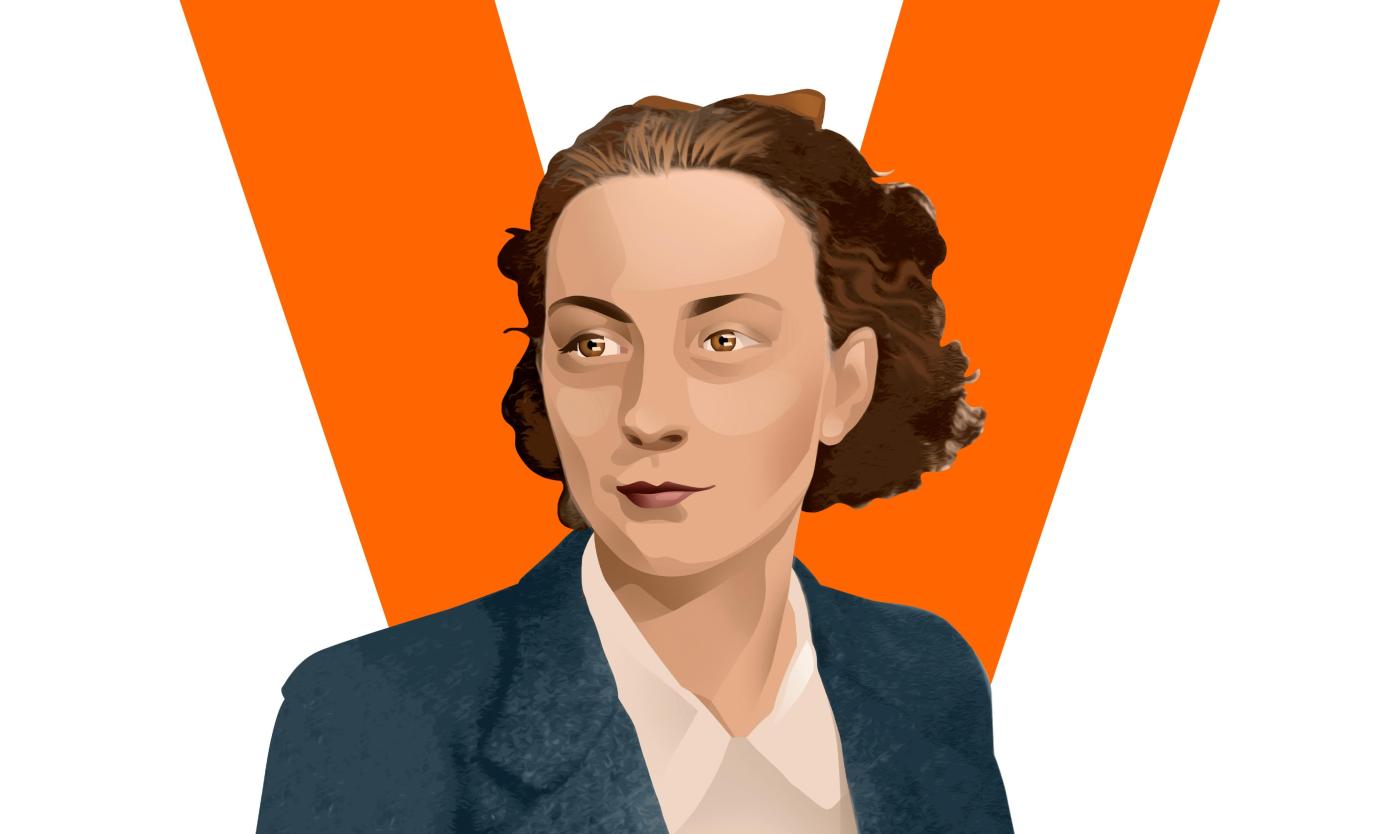
Andrée de Jongh
1916 - 2007
Andrée de Jongh, founder of the clandestine network Comète, helped at least 600 people escape from captivity together with her collaborators. She later studied nursing and left for Congo to take care of leprosy patients.
Born in 1916 in Schaarbeek, Andrée de Jongh was the daughter of a teacher and a school principal. As an adult, she first worked as a commercial artist. When Belgium surrendered after the 18 Days’ Campaign on 28 May 1940, she decided to sign up as a nurse at the hospital in Bruges, where she came into contact with Allied pilots who had crashed in occupied territory.
To prevent these soldiers from becoming prisoners of war, Andrée mapped out an escape route in the summer of 1941, when she was just 23. Escorted on a train, the soldiers left Brussels for Spain via the Pyrenees. Spain was officially neutral, despite Franco’s alignment with the Germans. From there, they had to travel to Gibraltar or Portugal. It was a complex route, but the only safe one.
The trek through Pyrenees was the toughest part, with the weakened soldiers having to cross the mountains on foot. Andrée and the pilots were assisted by Arnold Deppé, who knew the mountains well. He was arrested on his second crossing, but this did not deter Andrée; on the contrary, it motivated her to fine-tune the escape route even more precisely, in collaboration with the British secret service MI9 in Spain and her father, Frédéric.
This collaboration led to the emergence of the clandestine Comet Line network. The group had 3,000 members, primarily young women, some of whom were as young as 17. Andrée received the codenames Dédée and Cyclone, in reference to her bravery, her temperament and her unbridled energy. She and her collaborators helped 700-800 people escape from captivity. Andrée herself crossed the Pyrenees 22 times, saving the lives of 118 soldiers.
On 15 Januari 1943, Dédée and other Comet members were arrested and interrogated by the Gestapo. Although she admitted to being the founder of the Comet Line, she was not believed because of her age and gender. She was held at Ravensbrück concentration camp and later transferred to Mauthausen, but survived both camps, although she was severely weakened. Her father and 144 other Comet members did not survive; some died in concentration camps, others, like Frédéric de Jongh, were executed.
After the war, Andrée studied nursing and travelled to Congo to care for leprosy patients. Her acts of resistance were recognised by King Baudouin, who elevated her to the peerage. She also received the American Medal of Freedom. Dédée died in 2007 at the age of 90. In 2019, a street in Laken was named in her honour.
Find out more
- The novella De weg naar San Sebastian, by Tim Van Steendam in collaboration with Helden van het Verzet, tells her story.
- Historian Marie-Pierre d’Udekem d’Acoz wrote the biography Andrée de Jongh: Une vie de résistante.
- The BBC podcast History’s Secret Heroes dedicated the 18th episode of its second season to her.
- Andrée de Jongh was the inspiration for the film La grande vadrouille with Louis Funès.
Sources
- D’Udekem d’Acoz, Marie-Pierre, ‘De Jongh Andrée’, Belgium WWII, s.d., https://www.belgiumwwii.be/nl/belgie-in-oorlog/persoonlijkheden/de-jongh-andree.html, consulted on 1 May 2024.
- Janssens, Amber, ‘Andrée De Jongh: de Belgische verzetsstrijder over wie de BBC een podcast maakte’, De Standaard, 9 April 2024, https://www.standaard.be/cnt/dmf20240408_97119762, consulted on 1 May 2024.
- Comète: vrouwen in het verzet [documentaire], België: VRT, 2024.
- ‘Belgische verzetstrijders krijgen straatnaam in Tivoliwijk’, Bruzz, 28 November 2019, https://www.bruzz.be/index.php/samenleving/belgische-verzetstrijdsters-krijgen-straatnaam-tivoliwijk-2019-11-28, consulted on 1 May 2024.